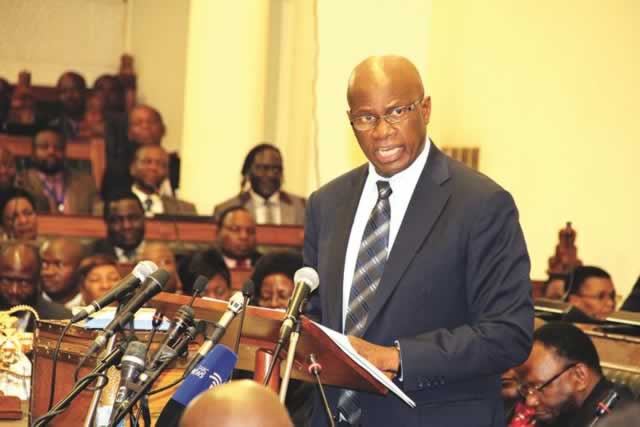Corrupt fat cats face jail time

Paidamoyo Chipunza Senior Reporter—
Cabinet yesterday approved principles that will form the Public Sector Corporate Governance Bill yesterday, a law that will ensure heads of parastatals, State enterprises and local authorities who do not abide by their conditions of service are prosecuted. The law will guide appointment, performance appraisal and remuneration of heads of public entities following the adoption of the Zimbabwe Corporate Governance and Remuneration Policy Framework (ZIMCODE) by Cabinet at its seventh meeting of 2014.
It will also be binding on ministers and regulates how they oversee entities falling under their portfolios.
The drafting of a Bill for ZIMCODE comes at a time when executives and managers at State enterprises, local authorities and parastatals were resisting circulars from the Cabinet Secretariat to conform to the Corporate Governance Framework presented by Finance and Economic Development Minister Patrick Chinamasa in Parliament, including a US$6 000 salary cap for senior managers.
Minister Chinamasa last night told The Herald that the principles would be forwarded to the Attorney-General for drafting into a Bill.
“It is important that we come up with a legal framework that is binding on management, board of directors as well as ministers in the running of parastatals,” said Minister Chinamasa.
He said the Bill was necessitated by realisation that parastatals lacked corporate governance, resulting in top executives paying themselves mega salaries.
According to the principles for the Bill that Minister Chinamasa presented to Cabinet yesterday, decisions on the conditions of service of executives should made by a resolution from a well-constituted board meeting; while selection and appointment of board members and CEOs would be on merit.
The CEO’s position would be advertised in the media and the board, with assistance from a human resources consultant, would conduct interviews.
Three nominees would be submitted to the line minister, who would then forward a recommendation from these to the President for approval.
CEOs’ employment contracts should clearly spell out severance packages under different scenarios of termination of service.
Further, CEOs would be appointed on four-year contracts which may be renewable only once.
“The contracts should clearly spell out the minimum requirements, which if not met, should constitute grounds for termination of service.”
On appointment of board members, a clearly defined capability matrix and skills mix should be applied, while a 50:50 gender representation and regional spread should be respected.
Upon appointment, board members will be required to declare their assets and interests and sign a code of conduct.
“Ministers should appoint appropriately qualified and experienced persons from their ministries to sit through deliberations of the board in an ex-office capacity and to report to the parent ministry the gist of the board’s deliberations,” the principles spell out.
Boards should sit quarterly, and any extraordinary meeting would be first cleared by the relevant permanent secretary.
All State enterprises would be expected to hold annual general meetings which representatives from the Office of the President and Cabinet, Treasury, the parent ministry, the Auditor and Comptroller-General and other stakeholder ministries should attend.
Line ministers will also be expected to meet full boards under their jurisdiction at least twice a year.
Just like their CEOs, board members should have four-year terms with the contract renewable only once.
The draft principles also give room to anyone interested in being a board member of any State-linked firm to submit a curriculum vitae through public invitations from ministries. Ministries should then create databases of potential board members.
It has also been proposed that no person should sit on more than two boards of a public enterprise. Permanent secretaries would no longer be eligible to sit on any public enterprise board.
All external audit reports should be submitted by auditors directly to line ministers.
The law would also operationalise a Corporate Governance and Delivery Agency within the Office of the President and Cabinet to co-ordinate and monitor compliance with ZIMCODE.
“Cabinet is hereby kindly requesting to approve the principles in order to pave way for drafting of the Bill,” said Minister Chinamasa, getting the nod from his executive colleagues.










Comments